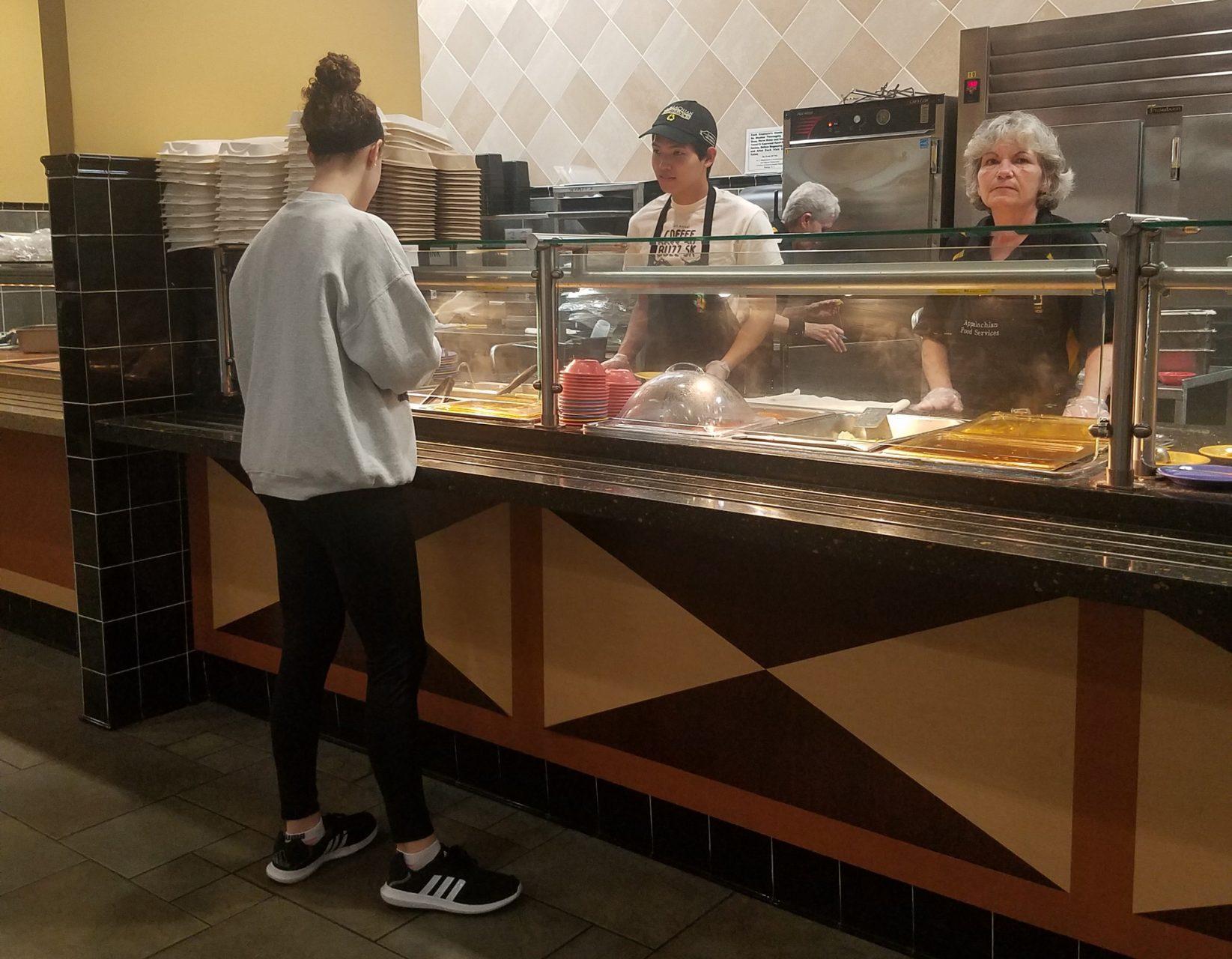Story by Anna Dollar, News Reporter, @Anna_Carrr
Photo by Lindsey Vaughn, Staff Photographer
Students that live on campus, with the exception of students in Mountaineer Hall, are required to have meal plan accounts.
“The meal account is billed through tuition and fees,” Stephanie Lee, communications specialist for food services said via email. “Students sign up for meal accounts when they sign up/ apply for on-campus housing. Students with a freshmen class rank can choose from the standard ($1,357 with state sales tax added), high ($1,576 with state sales tax added) and super ($1,917 with state sales tax added) options. These prices are per-semester.”
The meal accounts work as funds for students to be able to purchase any food on campus, such as at coffee shops, vending machines, markets and dining halls.
“Our dining halls are a la carte, which means that students are able to pick and choose what they eat every day,” Lee said via email. “It also means that students must be aware of their spending habits.”
Tomiwa Olufolabi, director of service for Student Governor Association and senior building sciences major, said that SGA is finding ways to help students with their meal plan finances on campus. SGA made a Facebook group last semester called Mountaineer Meal Share.
“Students with extra meal plan money can sell it at a discounted rate, or give it away for free to other students in need,” Olufolabi said.
Food Services at Appalachian State University is self-operated, meaning that the business is not sustained through state funding and that it is 100 percent receipt supported.
Mitigating food costs and spending resources wisely is how Lee said that they can best serve students.
“We have a little system where we have people drop a bean in a jar, and that’s really just for us to track usage,” Jennifer Maxwell, sustainability program manager said.“Currently, we don’t ask for any information, it’s just an honor system.”
The food pantry has an honor system, meaning that they do not ask people that need food any questions about confidential information such as their financial standing.
“Food insecurity can be ongoing or it can be at certain times, like when you run out of your meal plan,” Maxwell said.
The food pantry relies on donations from people, and it is for students, faculty or staff to use if they are low on meal plan money.


